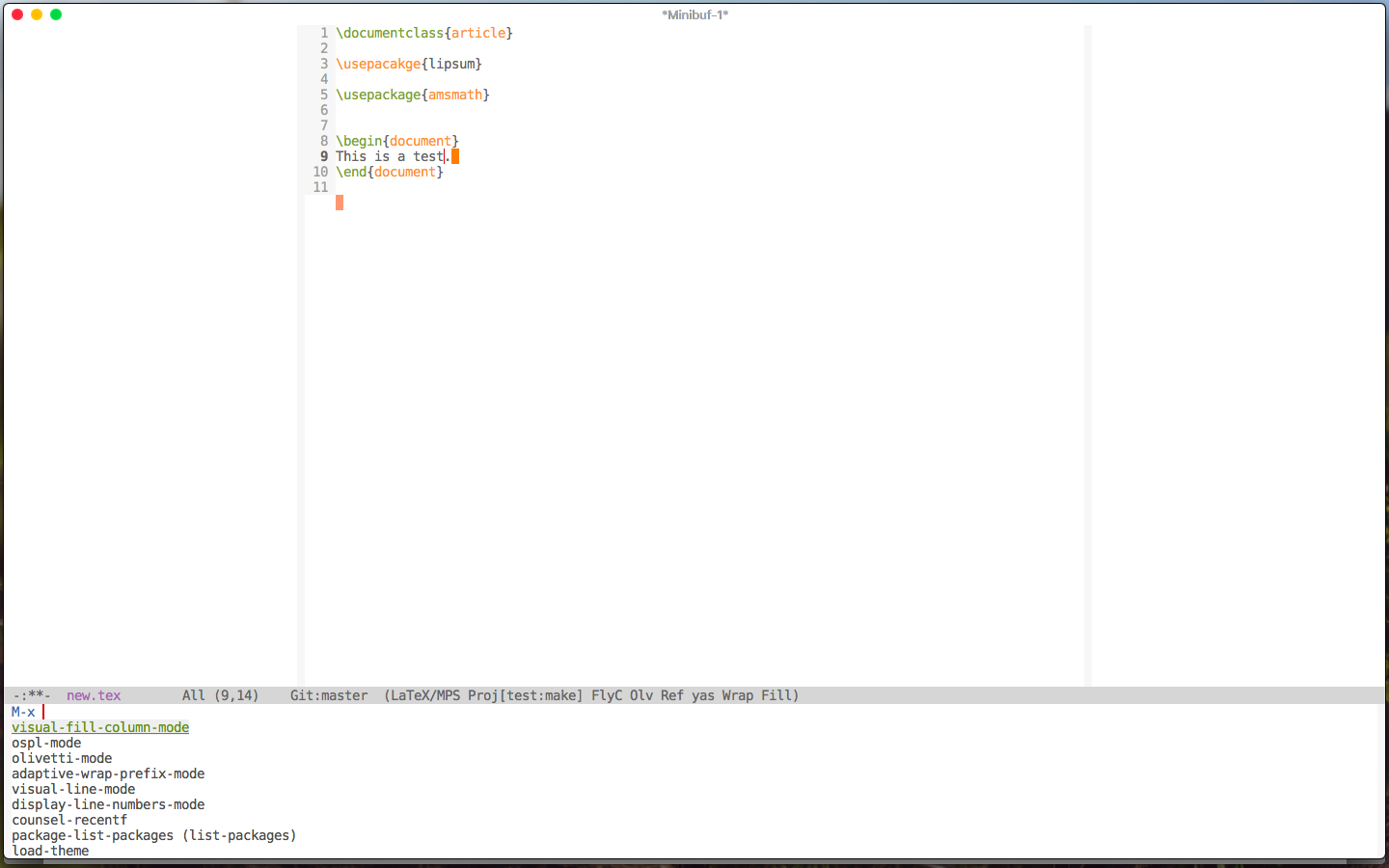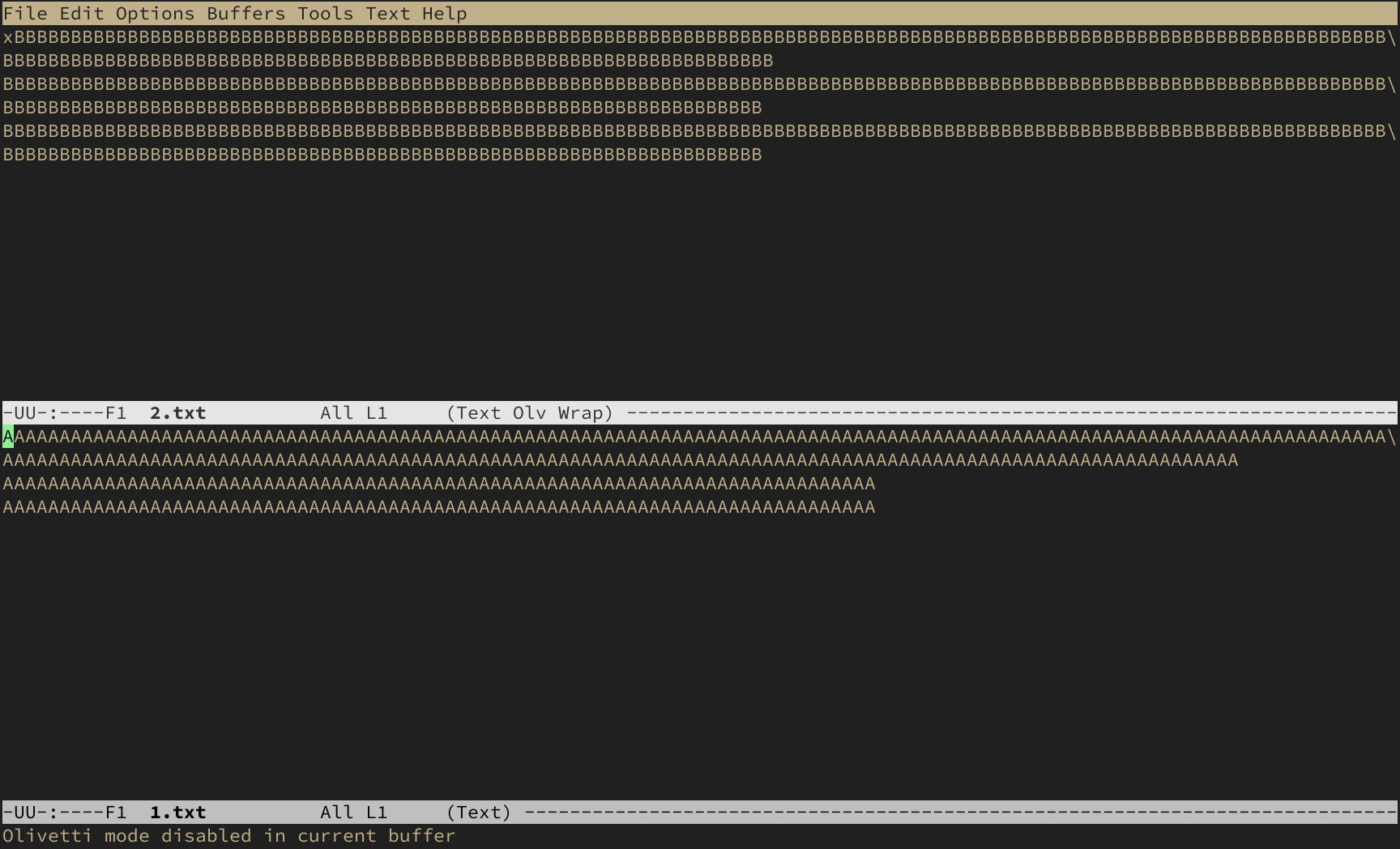A simple Emacs minor mode for a nice writing environment.
- Set a desired text body width to automatically resize window margins to keep the text comfortably in the middle of the window.
- Text body width can be the number of characters (an integer), a fraction of
the window width (a float between 0.0 and 1.0), or
nilwhich uses the value offill-column+2. - Interactively change body width with:
olivetti-shrink C-c { { { ...
olivetti-expand C-c } } } ...
olivetti-set-width C-c | - If
olivetti-body-widthis an integer, the text body width will scale with use of text-scale-mode, whereas if a fraction (float) then the text body width will remain at that fraction. - Change the way the text body margins look with option
olivetti-style: use margins, fringes, or both for a fancy "page" look. - Customize
olivetti-fringeface to affect only Olivetti buffers. - Optionally remember the state of
visual-line-modeon entry and recall its state on exit.
Olivetti keeps everything it does buffer-local, so you can write prose in one buffer and code in another, side-by-side in the same frame.
- Emacs 24.4
The latest stable release of Olivetti is available via MELPA-stable. First, add MELPA-stable to your package archives:
M-x customize-option RET package-archives RET
Insert an entry named melpa-stable with URL:
https://stable.melpa.org/packages/
You can then find the latest stable version of olivetti in the
list returned by:
M-x list-packages RET
If you prefer the latest but perhaps unstable version, do the above using MELPA.
Download the latest tagged release, move this file into your load-path
and add to your init.el file:
(require 'olivetti)
If you wish to contribute to or alter Olivetti's code, clone the repository into your load-path and require as above:
git clone https://github.com/rnkn/olivetti.git
Use GitHub issues or Send me an email (address in the package header). For bugs, please ensure you can reproduce with:
$ emacs -Q -l olivetti.el
To always use a different width for a specific file, set a File Variable:
M-x add-file-local-variable RET olivetti-body-width RET 66 RET
See (info "(emacs) File Variables")
For those looking for a hardcore distraction-free writing mode with a much larger scope, I recommend Writeroom Mode.










